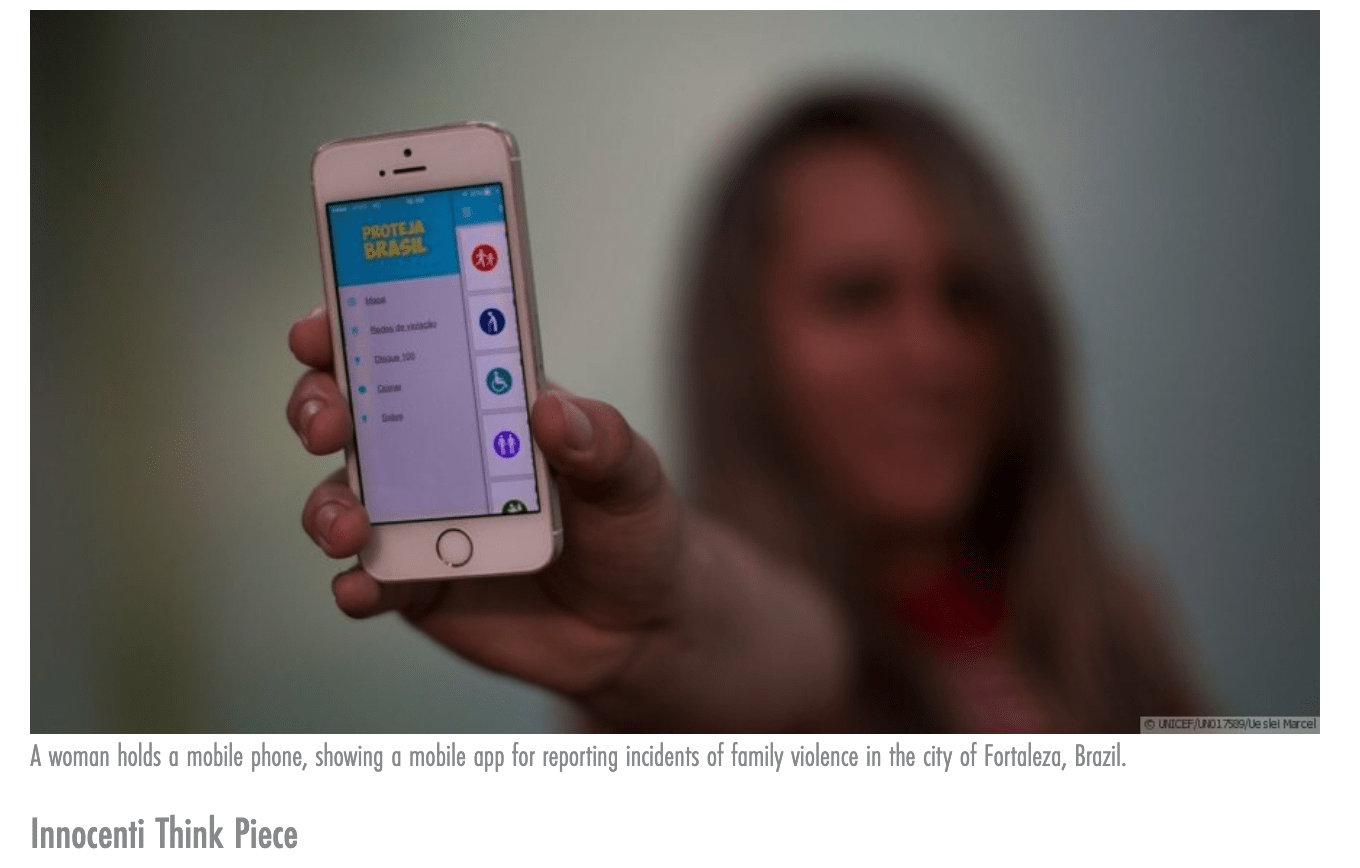Innocenti Think Piece, originally published here in full
By Amber Peterman, Amiya Bhatia and Alessandra Guedes on behalf of UNICEF Innocenti
Violence against women (VAW) is a priority global concern especially during the COVID-19 pandemic. Supporting survivors during this time requires understanding the characteristics and magnitude of violence and effectiveness of responses – for which we need rigorous research. Researchers are well positioned to contribute to policy dialogue, drawing both on past evidence to inform critical pandemic responses, as well as studying dynamics as they unfold to inform real-time decisions within future pandemics. This requires that researchers adapt their research methods to remote approaches, place their research on hold, or develop new and creative methods. For example, impact evaluations and routine household surveys are converting in-person surveys into mobile data collection efforts. New surveys planned to monitor and rapidly inform the COVID-19 response are using diverse remote options, including phone, or internet platforms.
While general guidance exists for phone and SMS-based surveys and a recent blog outlined the key considerations for researchers with regard to collecting data on VAW during COVID-19 – questions remain: Is it necessary - or possible - to safely and accurately collect VAW data, given the risks and ethical challenges? And, if so, by whom and under what circumstances should VAW data be collected? Further, if surveys proceed, in past efforts, how have experts overcome ethical and methodological challenges within remote VAW data collection to produce quality and actionable evidence?
Collecting data on experiences of VAW has always required careful attention to ethical and safety concerns throughout the research process. Guidance for this is based on decades of research. ‘Putting women first’ includes special selection and training of interviewers, attention to confidentiality and referral mechanisms, as well as establishing adverse event protocols to ensure rapid response in the case women or data collectors are in danger of immediate harm. In addition, there is an ethical obligation to ensure no individuals or communities can be identified or stigmatized and that findings are properly interpreted, presented and used to advance policy and programming for survivors. All these considerations are relevant - and magnified - in the context of COVID-19. Yet, remote surveys have been undertaken ethically and safely in the past, and we should learn from these experiences.
In this 2-part “Conversations with experts”, we unpack what COVID-19 means for data collection efforts. In part 1 of this blog, we focus on VAW, and talked with 10 experts who together have led, designed and implemented dozens of data collection efforts: Amber Clough, Dr. Avanti Adhia, Dr. Henriette Jansen, Kaitlin Love, Dr. Kathleen C. Basile, Dr. Kathryn Falb, Olivia Ryan, Dr. Nancy Glass, Sara Grant-Vest, Dr. Sharon G. Smith (learn more about the experts below). What follows is based on informal conversations to frame issues many researchers are grappling with during COVID-19. The responses below draw on personal expertise and experiences, do not represent the official standpoints of their organizations and are not meant to replace official guidance from affiliated organizations.
Is it necessary - or possible - to safely collect VAW measures given the risks and ethical challenges?
While VAW measures have been safely collected over the phone, internet and other remote methods before (e.g. Argentina, Canada, United States) – these have primarily been undertaken in high income countries (HICs) – and without the added survey logistical challenges imposed by COVID-19. Within the rapid response efforts, experts emphasized the importance of critically assessing if and how VAW data will be useful for policy action, and recommended that researchers should: “only collect data when you can collect data safely, when it is clear what it means and what not, and when it is actionable. We must get our priorities right and support vulnerable groups. No situation justifies unethical, unreliable and un-actionable data collection exercises [Henriette Jansen]” Experts argued that it may not be justified or feasible to collect VAW data during lockdown, suggesting that “we already know it is a pervasive issue” and cautioning that “especially in situations of lockdown, we cannot safely and reliably get data on women’s experiences of violence when they are at home with their abuser. If we would collect such data using remote methods, there will be real safety risks and the findings will be hard to interpret; as we probably get a huge underestimation due to non-response, participant bias and non-disclosure. This will further undermine the importance of the issue [HJ].” This sentiment is in line with recent WHO and UN Women guidance on Violence Against Women and Girls data collection during COVID-19, which recommends not to include direct questions on VAW experience within population-based rapid assessments.
For the full conversation, please visit UNICEF Innocenti's original publication here.


